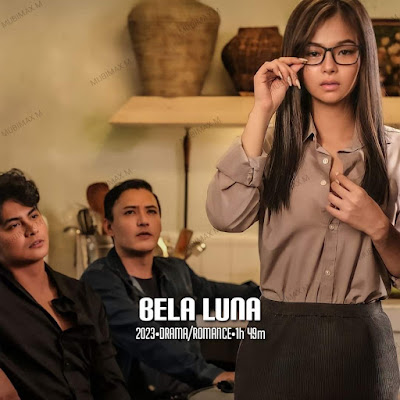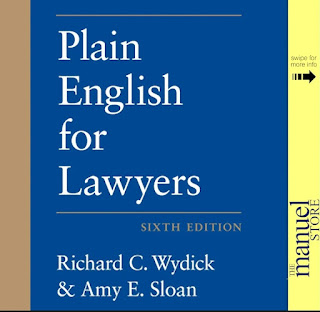(Part 17) EN BANC | Hernando, J. CANSINO et al. vs. ATTY. VICTOR D. SEDERIOSA [ A.C. No. 8522, October 06, 2020 ]
[ A.C. No. 8522, October 06, 2020 ]
We now resolve the issue whether Atty. Sederiosa engaged in the practice of law during the period of his suspension. The Court rules in the affirmative.
The regulation of the practice of law falls upon the exclusive jurisdiction of the High Court. As such, a lawyer who has been suspended from the practice of law by the Court must refrain from performing all functions which would require the application of his legal knowledge within the period of suspension.
The practice of law includes any activity, in or out of court, which requires the application of law, legal procedure, knowledge, training, and experience. It comprises the performance of acts which are characteristic of the legal profession, or rendering any kind of service which requires the use in any degree of legal knowledge or skill.
Guided by the foregoing on what constitutes a practice of law, it is beyond cavil that notarizing of documents constitutes a practice of law. In fact, one of the requirements to be a duly commissioned notary public is that he/she must be a member of the Philippine Bar in good standing. Pertinently, Section 1, Rule III of the 2004 Rules on Notarial Practice provides:
SECTION 1. Qualifications. - A notarial commission may be issued by an Executive Judge to any qualified person who submits a petition in accordance with these Rules.
To be eligible for commissioning as notary public, the petitioner:
(1) must be a citizen of the Philippines;
(2) must be over twenty-one (21) years of age;
(3) must be a resident in the Philippines for at least one (1) year and maintains a regular place of work or business in the city or province where the commission is to be issued;
(4) must be a member of the Philippine Bar in good standing with clearances from the Office of the Bar Confidant of the Supreme Court and the Integrated Bar of the Philippines; and
(5) must not have been convicted in the first instance of any crime involving moral turpitude.
In other words, a lawyer, during the period of his/her suspension, is barred from engaging in notarial practice as he/she is deemed not a member of the Philippine Bar in good standing, which is one of the essential requisites to be eligible as a notary public.
In the instant case, we find the penalty of suspension from the practice of law for two (2) years as commensurate to the infractions he committed, on top of the suspension for one (1) year previously imposed upon him which he has yet to serve, with revocation of his current notarial commission, if any, and permanent disqualification from acting as notary public.
Ads.
Simply scroll down to continue reading this article.
 |
| 2023 Bar Exam Quiz Cards Reviewer for ₱150 - ₱500. |
Ads.
 |
| ▶️ Watch here |
Ads.
 |
| ▶️ Watch here |
Ads.
.jpeg) |
| ▶️ Watch here |
ads.
LAW BOOK FLAGS / FILING TABS
![]() Shop here: https://go.shopple.co/spm01i
Shop here: https://go.shopple.co/spm01i
More @ https://shopple.co/Lex-curiae
Visit ![]() "Bar techniques"
"Bar techniques"![]() : Abubot ni atorni
: Abubot ni atorni
 |
| Watch HERE |
 |
| Now is the time to upgrade your study table and establish a study environment. LZD: https://s.lazada.com.ph/s.6KeIS?cc SHP: https://go.shopple.co/spn8co |
 |
| No more overheating! LZD: https://s.lazada.com.ph/s.6KTde?cc SHP: https://go.shopple.co/spn8bx |
 |
| Phone screen cleaner |
 |
Disbarment is the most severe form of disciplinary sanction hence it must be exercised with great caution. It must therefore be imposed only for serious reasons and in clear cases of misconduct affecting the standing and moral character of the lawyer as an officer of the court and member of the bar.
As We have emphasized in Alitagtag v. Atty. Garcia, viz.:
Indeed, the power to disbar must be exercised with great caution, and may be imposed only in a clear case of misconduct that seriously affects the standing and the character of the lawyer as an officer of the Court and as a member of the bar. Disbarment should never be decreed where any lesser penalty could accomplish the end desired. Without doubt, a violation of the high moral standards of the legal profession justifies the imposition of the appropriate penalty, including suspension and disbarment. However, the said penalties are imposed with great caution, because they are the most severe forms of disciplinary action and their consequences are beyond repair.
The transgression committed by Atty. Sederiosa is a mockery on the High Court's power to discipline erring lawyers. Engaging in the practice of law during one's suspension is a clear disrespect to the orders of the Court. In doing so, the faith and confidence which the public has reposed upon the judicial system has been put at stake as it gives the impression that a court's order is nothing but a mere scrap of paper with no teeth to bind the parties and the whole world.
Moreover, Atty. Sederiosa's unauthorized legal practice is a clear violation of his duty to observe the law and rules.
On a final note, the Court, once again, reminds the lawyers that the practice of law is a privilege burdened with conditions. As vanguards of our legal system, they are expected to uphold not only legal proficiency but also a high standard of morality, honesty, integrity and fair dealing. This We have put emphasis on in Atty. Embido v. Atty. Pe, Jr. :
No lawyer should ever lose sight of the verity that the practice of the legal profession is always a privilege that the Court extends only to the deserving, and that the Court may withdraw or deny the privilege to him who fails to observe and respect the Lawyer's Oath and the canons of ethical conduct in his professional and private capacities. He may be disbarred or suspended from the practice of law not only for acts and omissions of malpractice and for dishonesty in his professional dealings, but also for gross misconduct not directly connected with his professional duties that reveal his unfitness for the office and his unworthiness of the principles that the privilege to practice law confers upon him. Verily, no lawyer is immune from the disciplinary authority of the Court whose duty and obligation are to investigate and punish lawyer misconduct committed either in a professional or private capacity. The test is whether the conduct shows the lawyer to be wanting in moral character, honesty, probity, and good demeanor, and whether the conduct renders the lawyer unworthy to continue as an officer of the Court.
Read the full decision at https://lawphil.net/judjuris/juri2020/oct2020/ac_8522_2020.html






















Comments
Post a Comment